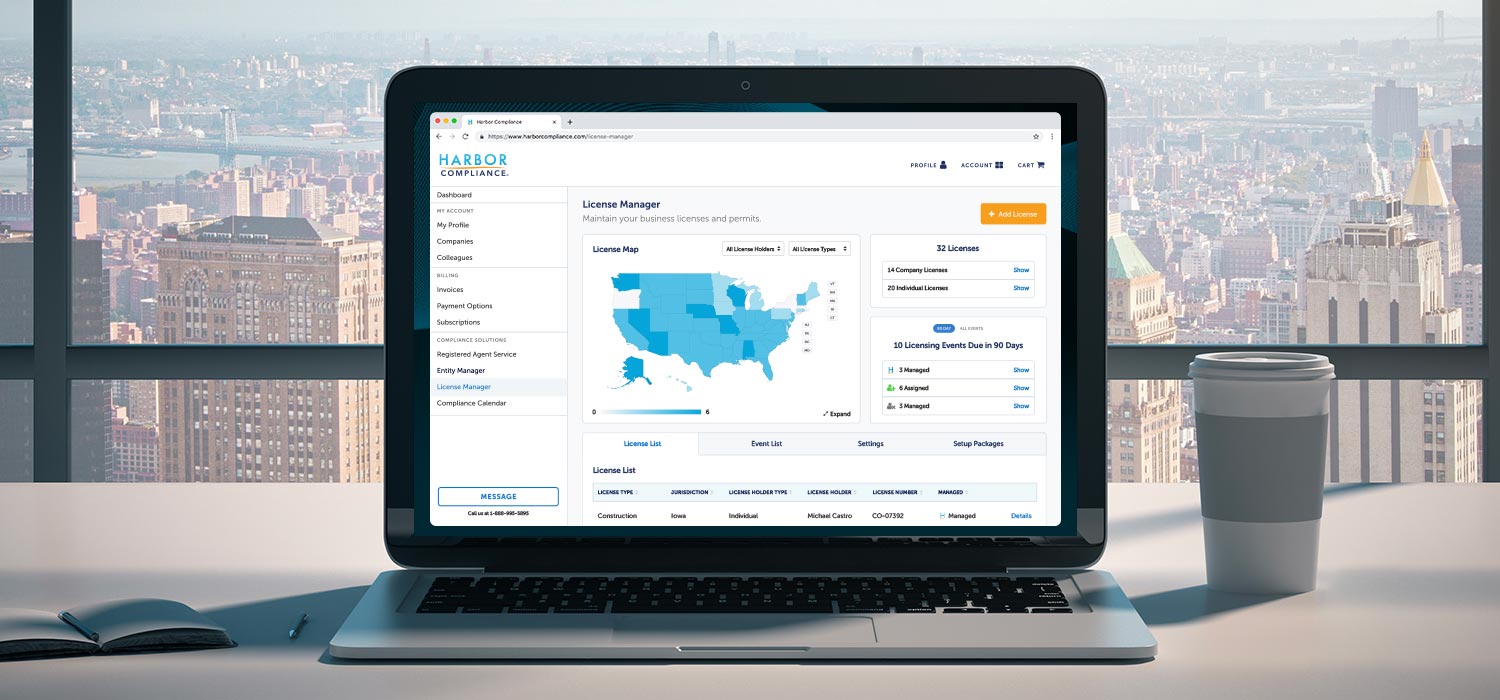
Utah Engineering Industry Licensing

Licensing requirements for engineering industry firms and individuals in Utah.
This page provides an overview of engineering industry licensing in Utah for individuals and firms. You will find state requirements, application fees, filing instructions, and more. For assistance with licensing, please contact us to learn about our software and managed license services.

Company Licenses
Utah Engineering Company Licenses
Utah Engineering Firm License
Not required
Engineering Firm licensure is not required on the State level in Utah.
Firm licenses are not issued at the state level, however, a licensed individual must oversee all engineering work. Firms should consult board rules and state statutes before doing business.
More information: Utah Department of Commerce - Division of Occupational and Professional Licensing| Law: | |
| Eligible Entity Types: |
|
| Ownership Requirements: | Business Corporations:
Professional Corporations:
Limited Liability Companies:
Professional Limited Liability Companies:
Partnerships:
|
Utah Land Surveying Firm License
Not required
Land Surveying Firm licensure is not required on the State level in Utah.
Firm licenses are not issued at the state level, however, a licensed individual must oversee all surveying work. Firms should consult board rules and state statutes before doing business.
More information: Utah Department of Commerce - Division of Occupational and Professional LicensingIndividual Licenses
Utah Individual Engineering Licenses
Utah Professional Engineer License
Initial Registration
| Form: | |
| Instructions: | The following requirements must be met: Education (one of the following) Bachelor degree or higher from an EAC/ABET or CEAB accredited engineering program; Complete the experience requirements as outlined in R156-22-302e; |
| Filing Method: | Mail or online. |
| Agency Fee: | $121 |
| Required Attachments: |
|
Reciprocal Registration
| Form: | |
| Instructions: |
|
| Filing Method: | Mail or online |
| Agency Fee: | $121 |
Registration Renewal
| Form: | |
| Filing Method: | Mail or online. |
| Agency Fee: | $73 |
| Due: | By March 31 of odd-numbered years. |
| Original Ink: | Not required |
| Notarize: | Not required |
Utah Professional Geologist License
Initial Registration
| Form: | |
| Agency Fee: | $165 |
Reciprocal Registration
Registration Renewal
| Filing Method: | |
| Agency Fee: | $138 |
| Due: | By March 31 of odd-numbered years. |
Utah Professional Land Surveyor License
Initial Registration
| Form: | |
| Agency Fee: | $121 |
Reciprocal Registration
Registration Renewal
| Form: | |
| Agency Fee: | $74 |
| Due: | By March 31 of odd-numbered years. |
Utah Professional Structural Engineer License
Initial Registration
| Form: | |
| Filing Method: | Mail or online. |
| Agency Fee: | $120 |
Reciprocal Registration
Registration Renewal
| Form: | |
| Filing Method: | Mail or online. |
| Agency Fee: | $73 |
| Due: | By March 31 of odd-numbered years. |
| Original Ink: | Not required |
| Notarize: | Not required |
Learn about engineering licensing in other states:
Design Firm - Engineering firm registration is sometimes grouped with architecture and land surveying on a single “design firm” application form.
EI (Engineering Intern) - A term also used to describe an Engineer in Training.
EIT (Engineer in Training) - A professional designation granted upon having completed at least 3 years of school at an ABET-accredited university and having passed the FE exam.
FE (Fundamentals of Engineering) - An exam testing on basic engineering principles that is required to become an engineer in training.
PE (Professional Engineer or 'Principles and Practice in Engineering') - Means either Professional Engineer or refers to the Principles and Practice in Engineering exam that is a prerequisite for an engineering license.
Reciprocity - When a licensed engineer in one state can provide documentation (often an NCEES Record) to more easily apply for a license in another jurisdiction.
Accreditation Board for Engineering and Technology (ABET)
Accrediting board that sets standards for university programs in a variety of applied science disciplines.
American Council of Engineering Companies (ACEC)
Engineering, architecture, and land surveying advocacy group.
American Society of Civil Engineers (ASCE)
Organization that provides continuing education, professional conferences, and advocacy efforts to the civil engineering community.
American Society of Mechanical Engineers (ASME)
Mechanical engineering organization that focuses on education and professional development.
Engineering Accreditation Commission (EAC)
Reviews accreditation requirements and makes final decisions regarding the accreditation process.
National Council of Examiners for Engineering & Surveying (NCEES)
Develops, administers, and scores the exams used for engineering licenses.
National Society of Professional Engineers (NSPE)
NSPE is an advocacy group for professional engineers.






